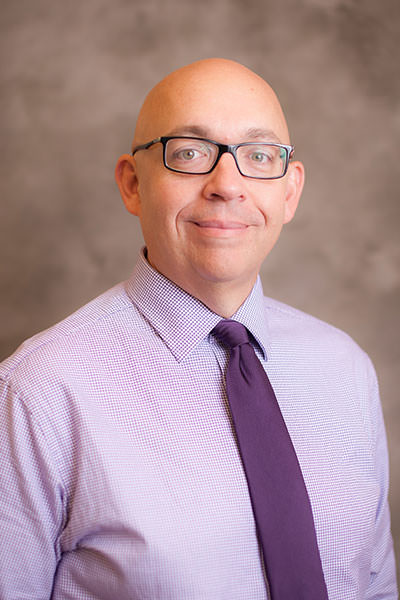The CCHS Mini Medical School presentations are now offered at Capstone Village, a residential retirement community on The University of Alabama Campus.
The Mini Medical School series was created several years ago by the College in collaboration with UA’s OLLI program and lets adults and community learners explore trends in medicine and health. Lectures are provided by CCHS faculty and resident physicians who also care for patients at University Medical Center.
The first Mini Medical School presentation at Capstone Village was provided Nov. 16 by Robert McKinney, MSW, LCSW, PIP, ACSW, an assistant professor of Social Work at CCHS and director of UMC’s Department of Social Services. The topic was anxiety.
McKinney said anxiety is normal and most people experience anxiety at some point in their lives. “The difference between regular anxiety and anxiety that we need to pay attention to has to do with the way those feelings affect our lives – if the same thing is bothering you for more than six months, and if you change your life because of the anxiety.”
He explained that common anxiety disorders are generalized anxiety disorder, panic disorder, social anxiety disorder and phobias, and symptoms include uncontrollable feelings of panic and fear, sleep disturbances, shortness of breath, increased heart rate, inability to sit still, nausea and dizziness.
McKinney said 40 million Americans suffer from anxiety disorders, but only one-third receive treatment, and that takes a toll on health. “Chronic stress has negative effects on the body and can create disease.”
So, how do you know if you have an anxiety disorder? “It’s about intrusive feelings that cause us to change something in our lives – going out of our way to avoid a perceived stressor, avoiding social situations, feelings of being watched or judged, panic attacks, sleeping less, or more, due to intrusive thoughts,” McKinney said.
The good news is that anxiety disorders respond well to treatment, he said, including therapy, medication, meditation, yoga and exercise.
“Anxiety is real, not imagined, and it should be treated like any other medical condition,” McKinney said.
